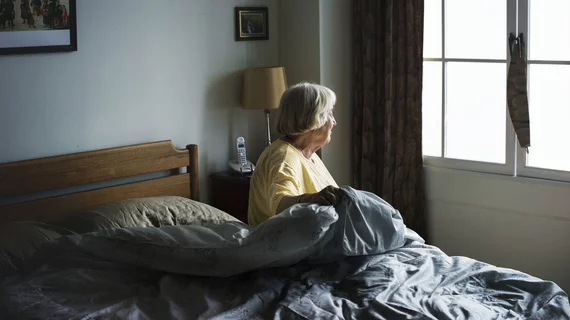Nursing homes acquired by private equity-backed firms are associated with more emergency department visits, hospitalizations and higher Medicare costs, according to new data published in JAMA Health Forum.
PE groups have made inroads into healthcare over the past decade, with about 5% of nursing homes now owned by private money. This trend has concerned many experts, particularly given Medicaid spends about $57 billion annually on long-term care residents.
That skepticism was partially confirmed on Friday, with long-stay residents at PE-acquired nursing homes 11.1% more likely to experience an ambulatory care-sensitive (ACS) ED visit and 8.7% more likely for an ACS hospitalization compared to those living in homes not run by equity groups.
A lack of transparency makes it highly difficult to even track down PE-owned homes and compare various types, the authors noted. And it’s time officials consider changing that, they added.
“Our findings suggest that more stringent oversight and reporting of related entities may be warranted,” Robert Tyler Braun, PhD, and co-authors with Weill Cornell Medical College’s Division of Health Policy and Economics, urged. “Policymakers might consider making more detailed ownership information available in outlets that provide consumers with information on nursing home quality, such as Nursing Home Compare.”
Their conclusions are based data from 302 private equity nursing homes with 9,600-plus residents and another 9,562 for-profit homes sheltering nearly 250,000 people. The information covered PE-acquired homes between 2013 and 2017 and utilized a difference-in-differences analysis to assess outcomes.
In addition to the increases in ED visits and hospitalizations among equity-backed nursing home residents, their quarterly costs also increased by 3.9% or about $1,081 per person.
Importantly, residents in nursing homes acquired by private money were just as likely to receive antipsychotics, develop a pressure ulcer or experience severe pain as those in other homes.
Private equity firms target annual returns of 20%, the authors noted, and more needs to be done to ensure greater visibility into their operations.
“This cohort study suggests that PE firm–owned nursing homes provided somewhat lower-quality long-term care than other for-profit homes based on two widely used quality measures and were associated with higher total per-beneficiary Medicare costs,” the authors concluded.
Read the full analysis here.

